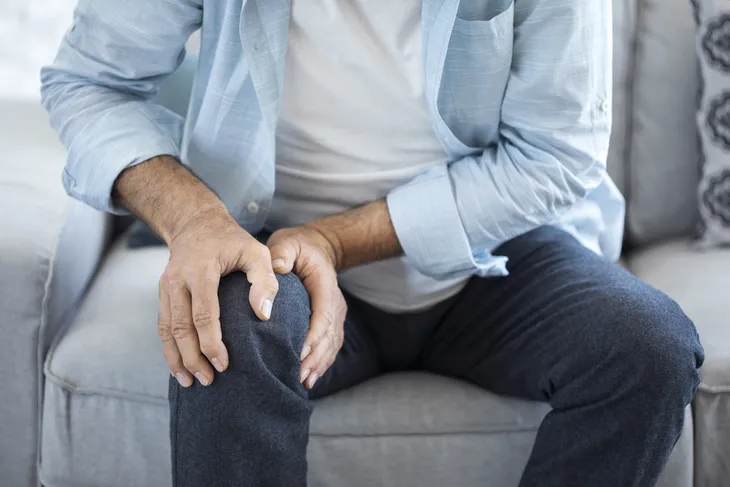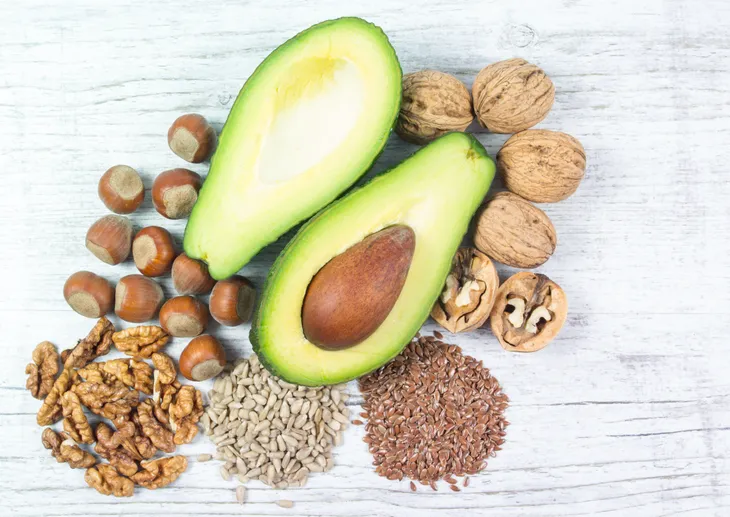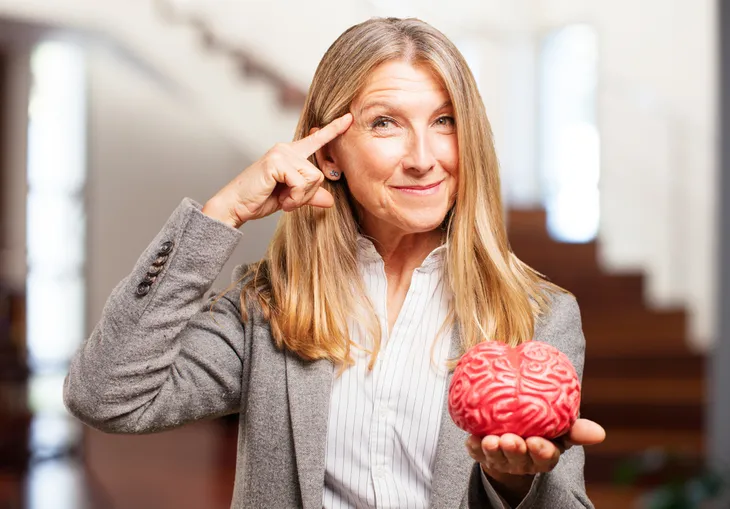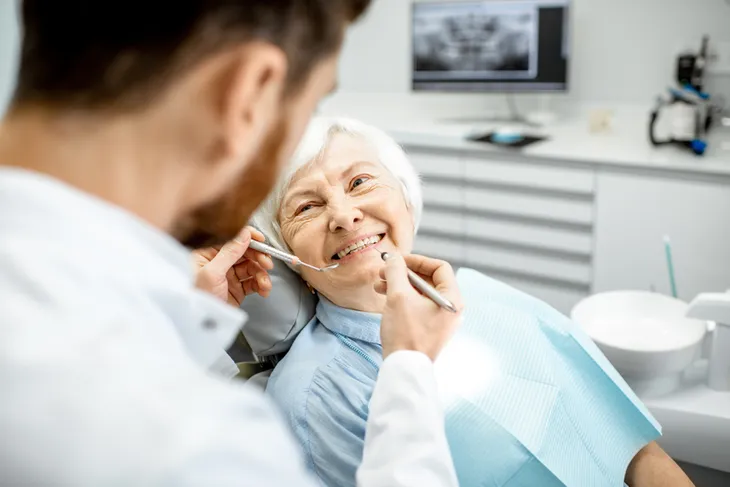Taking care of your body is important throughout your whole life, but it’s especially important as you enter your senior years. We all experience many changes both physically and mentally as we get older and learning to adapt to the changes is vital to keeping your body healthy and strong. You must take care of your body both internally and externally from protecting your skin to protecting your bones.
Follow along as we uncover 10 ways you can take care of your body after 55!
Want senior content delivered straight to your inbox? Sign up for our exclusive email list and receive articles and news on diet & nutrition, fitness, and mental health dedicated specifically to our senior audience!
Protect Your Bones
It’s normal to lose bone as we age, however, too much bone loss can cause osteoporosis. Osteoporosis is when your bones become so thin that they can break. Thankfully this disease is not a normal part of aging and there are plenty of ways you can protect your bones to keep them healthy and strong.
To start, make sure you’re getting enough calcium and vitamin D. Calcium is essential for bone health and you need vitamin D to help your body absorb calcium. Further, a healthy diet also plays an important role in protecting your bones so be sure to load up on fruits and veggies and lean sources of protein. For more ideas check out these foods to boost bone health!
Protect Your Joints
It’s fairly common for adults to experience joint pain as they get older. This is because the connective tissue and cartilage that is in charge of cushioning your joints can thin over time. It’s best to be proactive and take preventative measures as soon as possible to help alleviate joint pain that can happen later on.
There are many things you can start doing now to protect your joints. To begin, if you smoke, quit smoking! Smoking can increase inflammation which causes joint pain. Second, stay hydrated and drink plenty of water. If you aren’t hydrated your body will pull water from your cartilage as well as other areas of your body that can harm your joints. Finally, manage your weight and eat a well-balanced diet. If you’re not sure what you should eat check out these foods for healthy joints!
Stay Physically Active
There are many benefits of regular exercise for seniors. Staying physically active can help keep your body healthy and strong and it can also help prevent the risk of diseases and falls. The important thing to remember is it’s never too late to start exercising.
The Center for Disease Control and Prevention (CDC) recommends that seniors get about 150-minutes of moderate-intensity aerobic activity such as brisk walking or swimming each week. If you’re not sure where to start don’t fret. There are plenty of easy exercises for seniors that you can start doing. If you don’t want to head to a gym or hire a personal trainer check out these great at-home exercises for seniors that you can start trying today!
Eat Healthy Fats
Dietary fats provide your body with energy but they also help with cell growth too. The American Heart Association also states that fats can help protect your organs, keep your body warm, help your body absorb nutrients, and produce hormones. As you can see adding more dietary fats to your diet is essential to taking care of your body.
It is, however, important to note that not all fats are created equal. You’ll want to avoid bad fats such as saturated fats because these can do more harm, especially for your arteries and heart health. Stick to good types of fats like monounsaturated and polyunsaturated fats instead. You can start adding more healthy fats to your diet today, check out the top sources of healthy fats!
Follow a Healthy Diet
In addition to healthy fats, following a healthy diet as a whole is so important for your body! Fueling your body with the nutrients it needs will not only make you feel better but will help lower your risk of chronic diseases.
A great eating plan you can follow is the Mediterranean diet. This diet focuses on plenty of fruits and vegetables, whole grains, beans, and healthy fats. You may also want to speak to a dietician to find the perfect meal plan for you. For more ideas check out these everyday foods all seniors should be eating!
Protect Your Brain
Your brain plays a vital role in controlling your motor skills, vision, memory, emotion, hunger, and every other process that regulates your body. This is why it’s so important to protect your brain.
There are many ways seniors can boost brain health. To begin, always manage your stress and practice breathing or evening meditating. Stay physically active, and exercise your brain with fun brain-boosting activities like puzzles, chess, or learning a musical instrument. Finally, eat a healthy diet full of brain powering superfoods such as fatty fish, whole grains, and fresh fruits and vegetables.
Watch Your Blood Pressure
High blood pressure is common in older adults because our vascular systems change as we age. Your arteries can become stiffer which causes your blood pressure to rise. Managing your blood pressure is important for your body because if you don’t it can lead to a heart attack, stroke, and other complications.
Thankfully there are ways to prevent high blood pressure. Some of these include eating a healthy diet, quitting smoking, reducing salt intake, maintaining a healthy weight, exercising regularly, and more. You might also want to start including these everyday foods that lower blood sugar levels in your diet!
Take Care of Your Teeth and Gums
Oral health is an important part of taking care of your body regardless of your age. That said, seniors really need to take good care of their oral health because certain types of medical conditions like arthritis may make it hard to perform proper oral hygiene. Further, some medications may even affect your oral health.
The American Dental Association recommends that you brush your teeth at least twice a day with a fluoride-containing toothpaste. Make sure you find a brush that is comfortable in your hand and your mouth. Seniors may even find using a powered toothbrush is a lot easier too. Further, try your best to floss at least once a day, rinse with an antiseptic mouthwash to reduce bacteria, plaque, and gum disease, and be sure to visit your dentist regularly.
Take Care of Your Skin
Seniors need to take care of their skin because as we age our skin becomes more fragile. The skin becomes more thin, weak, and transparent which makes us more susceptible to wrinkles, sagging, dryness, and even bruising.
Thankfully there are many ways seniors can start taking care of their skin today! Always avoid hot water when bathing and try not to take an excessive amount of showers as this can put a strain on the skin. Furthermore, avoid products that have a lot of artificial ingredients, stay hydrated, and apply mild moisturizers after bathing. It would also be wise to look for moisturizers with SPF to protect your skin from the sun.
Don’t Skip Regular Checkups
Finally, a really important step in protecting your body after 55 is to never skip regular checkups. This includes regular visits to the doctor, eye doctor, dentist, and other specialist healthcare providers that you may need.
Keeping up with your regular checkups will help you catch problems early and in turn, treat any issues as soon as possible. All of these tips play an important role in ensuring you stay happy and healthy!













